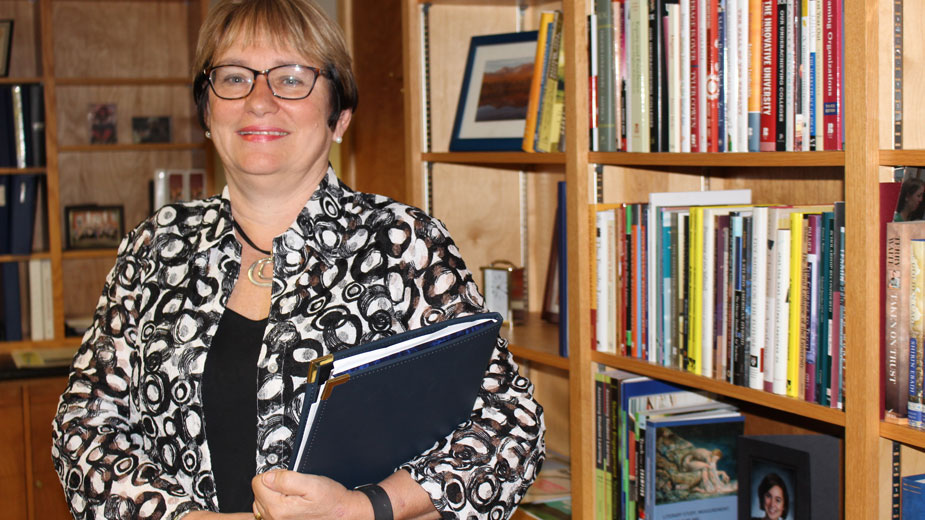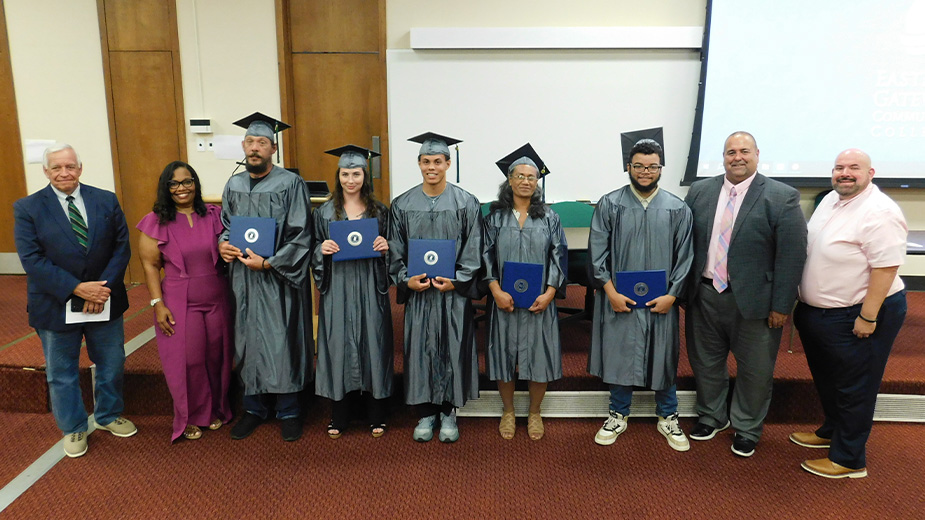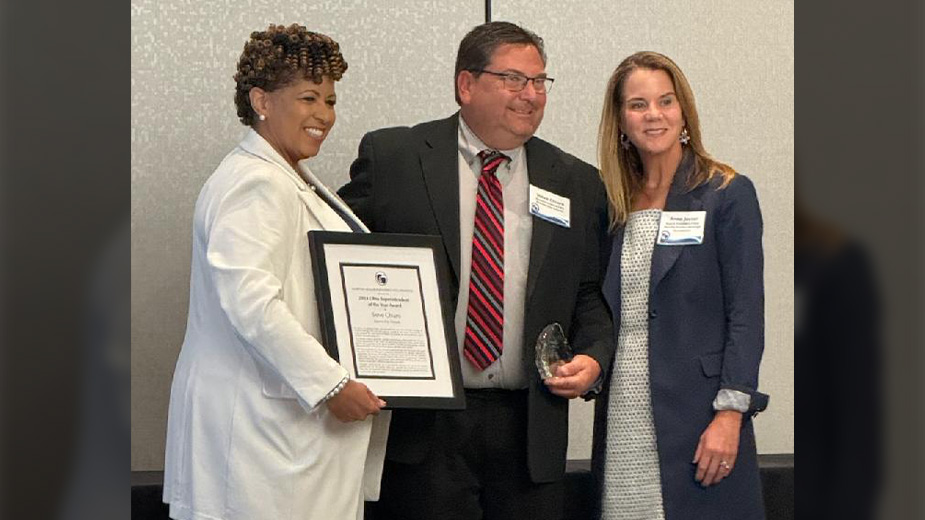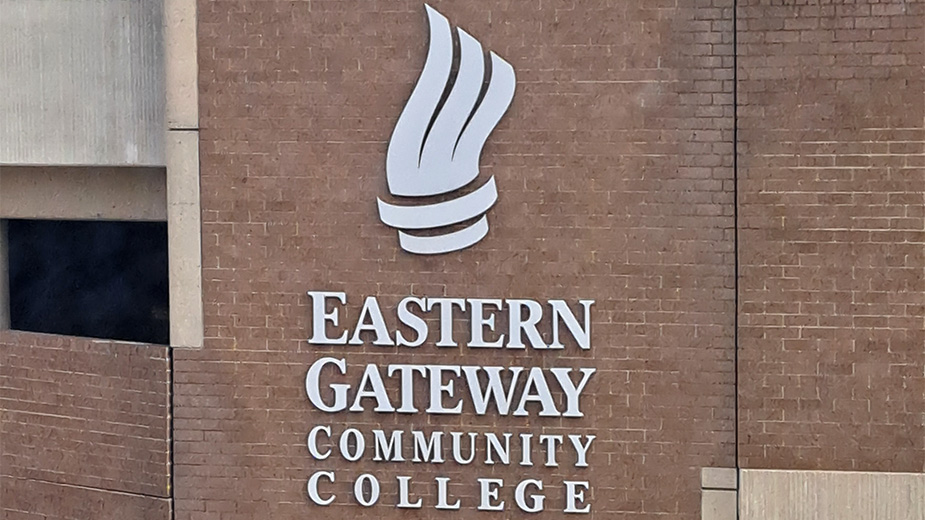Thiel Prepares Liberal Arts Students for Real World
GREENVILLE, Pa. — There is a common misconception about what a liberal arts college is. Many have misinterpreted it to mean a university or college dedicated solely to the promotion and advancement of degrees in subjects such as literature, English, history, philosophy and other disciplines in the humanities.
Not quite. Indeed, at Thiel College in Greenville, Pa., students are more acclimated than ever to engaging in scientific research, earning business and accounting degrees, and pursuing courses in communications and yes – all of them grounded with a strong exposure to the liberal arts.
“We intentionally link liberal arts to every major,” says President Susan Traverso, who began her tenure Aug. 1 as the 20th president of Thiel. “This way, a business major, for example, has a strong foundation in critical thinking, the ability to evaluate information, has clear communication skills and an understanding of cultures different than their own.”
The results are graduates with a high level of marketability and placement in either the job market or graduate schools, Traverso says. On average, the placement rate for Thiel graduates is close to 98%, she says. Last year, the education, accounting, and neuroscience departments all boasted 100% placement.
“We know that they’re taking that four-year degree and finding their way into the workforce or into graduate school,” Traverso says. “That’s a very good investment, even with some debt, since it allows students to find success across a lifetime.”
Over the past seven years, the college has transformed itself, thanks to an aggressive and successful fundraising campaign that began in the summer of 2009. Since then, Thiel has raised more than $61 million as part of its “Thiel 2016” campaign, a fundraising effort that coincided with the college celebrating 150 years. More than 8,500 donors contributed, making it the largest fundraising initiative in Thiel’s history.
The effort led to the construction of the $6.8 million Pedas Communication Center, renovations of Alumni Stadium, upgraded classrooms and labs, four new endowed chairs, and new scholarship and student research opportunities.
This fall, Thiel will break ground on a new athletics track and bids are being sought for a $4 million to $5 million “science connector,” which will join the academic center with the science building.
Robert Schmoll, Thiel vice president for finance and management, estimates that the college spends on average between $1.5 million and $2 million annually on campus improvements. “Our goal is to try and use the local contractors as much as we can,” he says. The Hudson Co., based in Hermitage, was general contractor for construction of the Pedas Center – and most of the subcontractors are based in the region.
These projects produce a ripple effect throughout the regional economy, Schmoll says. “We did a study a couple of years ago that found that a total of $20 million was spent in improvements,” he says. “When you look at the multiplier effect, it produced between $30 million and $50 million in economic impact to the area.”
Plans include an expansion of the science building, and more student housing, he adds. Enrollment stands at just over 1,000.
Building upon the synergy between the community and Thiel College is one of Traverso’s main objectives as she begins her presidency. One priority is establishing new partnerships within the business community that could lead to valuable internship opportunities for students.
“Thiel has always been connected with the larger community and is an asset to the entire Greenville region,” she says. “This is a way for the college to connect with the community and for the community to connect with us.”
Meanwhile, the opportunities for original research have expanded with the creation of Greenville Neuro-modulation Center, or GNC, in a renovated building along Main Street in downtown Greenville. The independent organization has awarded grants to faculty- and student-research initiatives.
“The goal is to get science students engaged in research,” the president says, “but also to link that to the broader liberal arts.”
The Greenville Neuromodulation Center, launched a year ago, was made possible through a donation by Thiel alumni Fred and Jill Hare, notes Delbert Abi Abdallah, an assistant professor of biology at Thiel and director of the GNC Faculty Student Research Institute. “They wanted to create an opportunity for students to engage in hands-on research so they can gain experience to prepare them for their post-Thiel careers.”
Members of the faculty develop proposals and present them to the GNC review board, which determines which to fund. “We didn’t have a model yet at Thiel for intensive, one-on-one research,” Abi Abdullah says. “This research institute allows for that. It has a viable long-term impact for Thiel and student learning.”
Abi Abdallah and his students are working on two projects. One, in conjunction with Cornell University, is examining food-borne pathogens caused by listeria, bacteria that could be fatal to those with weaker immune systems. “If you are healthy, it’s no big deal,” he notes. “But, if you are a child or if your immune system is compromised, it can kill you. We’re trying to find out how the immune system fights the infection.”
The second, project, in association with the University of Florida, examines the cloning of parasite genes with the hope of someday producing a vaccine against the parasite. “We’re at the stage of cloning the gene, which could take months or years,” Abi Abdallah says.
Grants awarded through the GNC are small compared with those of larger foundations, says Greg Butcher, chairman of the department of neuroscience. “Our grant was for $36,000 for a one-year project,” he says. “It might be a small amount, but it’s good to get started.”
Butcher says the money helps the ultimate objective, to have a substantial impact on the students’ educational prospects and training. “Our students have the opportunity to be more marketable for jobs or graduate school,” he says.
This summer, students conducted research on the effects of adolescent nicotine exposure on long-term memory in adults, Butcher reports. Another student project involved doing research on concussions in football, and testing methods of diagnosing head trauma on the sidelines.
Additional research conducted across the college – along with new tools – helps students in the sciences gain the experience they will likely need after college, says Sarah Swerdlow, assistant professor of biology. “We recently added a tissue culture room for research and class work,” she says. “Students are able to learn marketable skills such as growing cancer cells and performing experiments on those.”
One student took research from her junior year and this summer continued to work on it at the National Institute of Environmental Health Sciences. “She’s returning this year and she’ll continue her research and a junior will join her,” Swerdlow says.
Not all of the research at Thiel is concentrated in science. The GNC, for example, funded a student/faculty project this summer that helped develop a one-man student performance in the theater arts.
“I have a double major in history and English and a minor in classical languages,” says Austin Hall, a senior at Thiel. The GNC awarded Hall and his faculty mentor, professor of theater Pete Rydberg, two grants to conduct research on Hall’s one-man play, “Berlin ist Gefallen!,” a production centered in Germany during the Weimar Republic, which spanned the years from the end of the First World War to the rise of Adolph Hitler 1933. The grant helped fund trips to the Library of Congress to conduct research.
“I’ve had a hand in every show since I’ve been here,” Hall says. His performance is scheduled for Sept. 9 and 10 at Thiel’s theater.
Hall thinks his well-rounded education at Thiel has prepared him for much bigger things in life, and it’s probably not the stage.
“I plan on applying to Harvard Law School this year,” he says.
Pictured: Susan Traverso became Thiel president Aug. 1. She’ll meet alumni and supporters Sept. 10 during a reception at Avalon Country Club at Buhl Park in Hermitage, Pa.
Copyright 2024 The Business Journal, Youngstown, Ohio.



